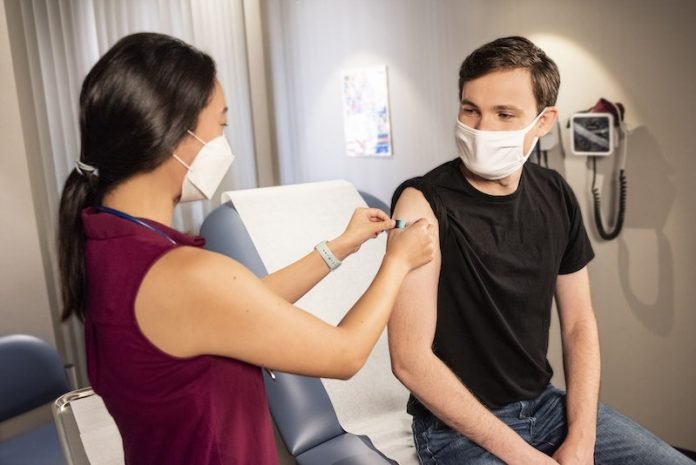
Scientists from Flinders University found that the rare blood clot side-effect associated with some COVID-19 vaccines could be the result of genetics.
The finding paves the way for a potential genetic screening test.
The research is published in medRxiv and was conducted by Professor Tom Gordon et al.
Vaccine-induced thrombotic thrombocytopenia (VITT), a rare disorder causing thrombosis (blood clotting) and thrombocytopenia (low blood platelet counts), was early in 2021 linked to the AstraZeneca COVID-19 vaccine.
It is also associated with the Johnson & Johnson vaccine Janssen.
In the study, the team looked at five unrelated people who had all experienced the clotting complication.
They found that all of the patients had unusually structured antibodies against a protein called platelet factor 4 (PF4), which is involved in blood clotting.
Additionally, all five had a specific version of a gene responsible for producing these antibodies.
The researchers then found that all of the patients carried a specific variant of one gene, called IGLV3-21*02, most commonly occurring in people of European descent.
The other specific amino acid sequences of these antibodies from each patient were derived from separate basic sequences but had all evolved to carry very similar properties, making them very potent attackers of the PF4 protein.
Together, this suggests that it is the combination of a variant in a gene and the evolution of this antibody towards targeting the PF4 protein in a destructive manner, which is leading to this harmful side-effect.
While the reason why only a tiny proportion of human vaccine recipients have this antibody requires further research, the authors say identifying the gene could make it possible to produce a genetic screening tool to identify patients who are at risk of this severe complication.
Sign up for our newsletter for more information about this topic.
If you care about COVID, please read studies about drug that can offer much-needed COVID-19 protection, and vaccines may not prevent severe COVID-19 in these people.
For more information about COVID, please see recent studies about new antibody treatment for COVID-19, and results showing this existing drug can save damaged lungs in COVID-19.
Copyright © 2022 Knowridge Science Report. All rights reserved.



